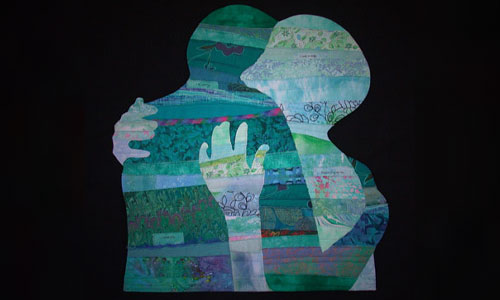Forgiveness is vital to healing the broken hearts and wounds and to restore good relations among people. It is an effective factor in developing excellence in human beings, physical and mental health and improving the societal relationships; guarantee long-lasting peace and gift prosperity. In fact, forgiveness is the conclusion of basic changes in one’s attitude about those who have offended him. Forgiveness will be more meaningful when you are powerful and strong.
There is positive correlation between satisfaction and forgiveness. Forgiveness is proposed to be an important pathway through which the effects of religion on health are mediated. Forgiveness is a powerful way cure the public wound when they have an uncomfortable and difficult trade forever. Forgiveness is a core value within Islam and many other religions like Christianity and Buddhism. Islam emphasizes justice and punishment of the wrong doers, but it equally highlights mercy, kindness and love. Justice, law and order are necessary for the maintenance of a social order, but there is also a need for forgiveness. We must keep in mind that as much as we need Allah’s forgiveness for our own sins and mistakes, we must also practice forgiveness towards those who do wrong to us. Forgiveness can be generalized to political issues such as peace talks, reconciliation, reintegration or nation-building.
Forgiveness will be productive for nations - when their politics repeatedly fail to establish a working government. Predominantly forgiveness is regarded as a holy word in Afghanistan, where disagreements left many sad stories and created painful situations. Forgiveness is a central approach to heal these pains, plant love and brotherhood, and reduce violence among Afghans. Hence, forgiveness means being familiar with human limitations, believing that people may make mistakes, and understanding that compassion is a good way for treating the discomforts.
Forgiveness is viewed as a positive response to humans’ wrongdoing. It changes negative feelings such as revenge, hatred, and unhappiness to the opposite such as peace, benevolence, empathy and sympathy. This leads one to appreciation, gratitude, modesty and hope as well as forgiveness is an invaluable feature that helps people develop their character and makes them adaptable to different stages of life. Forgiveness is an internal process showing positive self-esteem. Besides, it is considered a moral right. The right of avoiding to face pain and trouble and emotional problems, which are the results of unfair accidents, ethnic biases behaviors, and partial judgment. Being familiar with the effects of forgiveness and being aware of internal factors may lead to raising deep satisfaction in the community.
Forgiveness is achieved when one receives internal peace. This term is mentioned in Holy Qur’an five times. Literally the word “Afw” means “to release” “to heal”, “to restore”, “to remit”. Thus in relation to Allah it means “to release us from the burden of punishment due to our sins and mistakes”, “to restore our honor after we have dishonored ourselves by committing sins and making mistakes means to pardon, to excuse for a fault or an offense or a discourtesy waiver of punishment and amnesty. When disgust and pardon rise in one’s heart, and clinical treatments cannot cure them, forgiveness and happiness are spiritual factors that return people to a healthy and good life. Spirituality is a suitable source to help patients to forgive others.
Moreover, forgiveness is integrated with family issues, family is a unit of social system, the membership of which is influenced by different biological, legal, emotional, geographical and historical factors. Unlike other social systems, becoming a member of the family system is by marriage, birth or adopting as one’s child and just by one’s death, his membership in the family system comes to an end. One of the features of a stable society is forming a stable family. Since forgiveness is a learnable skill and parents’ interpretation of forgiveness influences children’s view. Starting a family and preventing its collapse requires certain abilities that can be traced to family members. Discovering and developing skills such as forgiveness has a big role in saving the family health, it safeguards the societal health, and finally saving a nation.
In other words, forgiveness is one of the potential abilities of all individuals. But identifying, activating and using that in intervention therapy require scientific findings so that it could be possible to pave the way for necessary changes in families. People who enjoy high self - esteem can overlook others’ faults. The more they forgive, the higher their esteem and glory would be. They will be enjoying their acts. People who are offended by each other can forgive the other person to decrease their anger or can take revenge on him/her.
Finally, revenge may cause a short-term spiritual relief, but regret in the long run. So pardoning and forgiving simply means not to revenge. The main motivation of human forgiveness as a universal dimension is forgiveness for cementing relationship between individuals and society. Paying attention to religious values is effective in making people forgive more easily.
Home » Opinion » Forgiveness – A Need for Society
Forgiveness – A Need for Society
| Dawlat Bakhtiari

